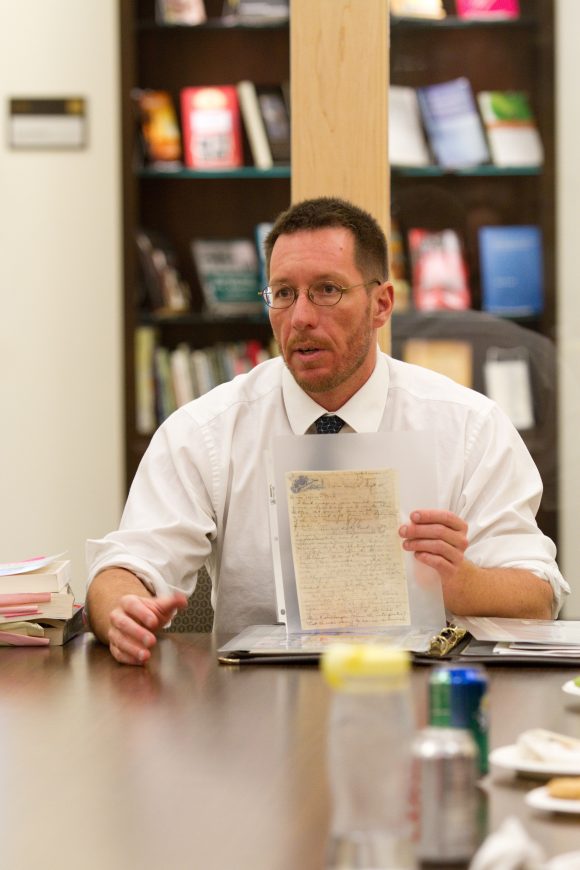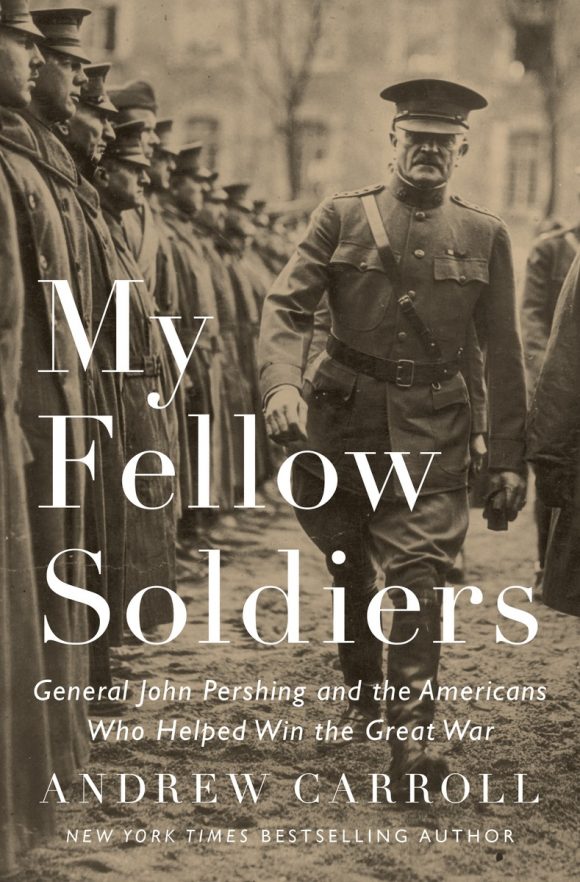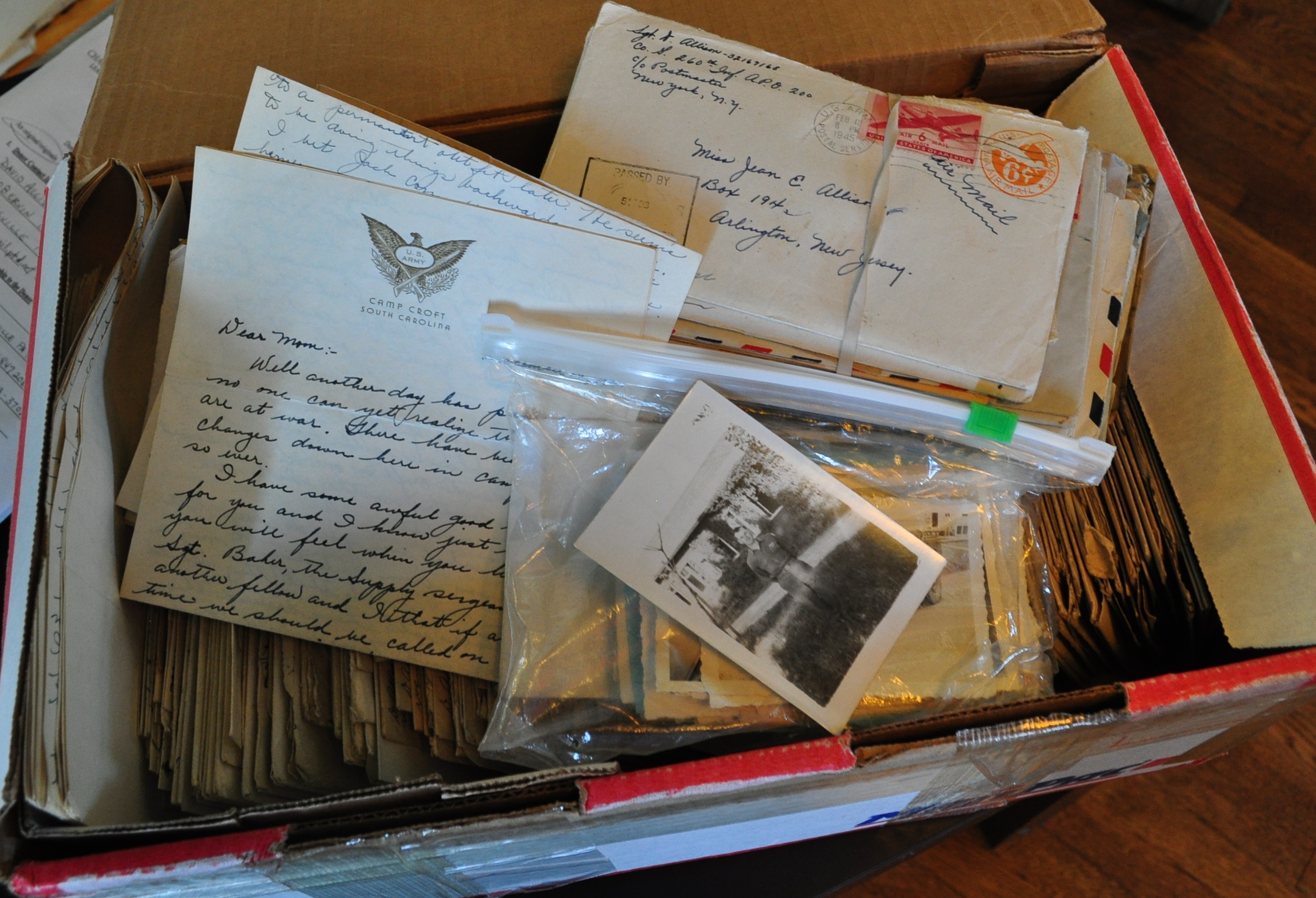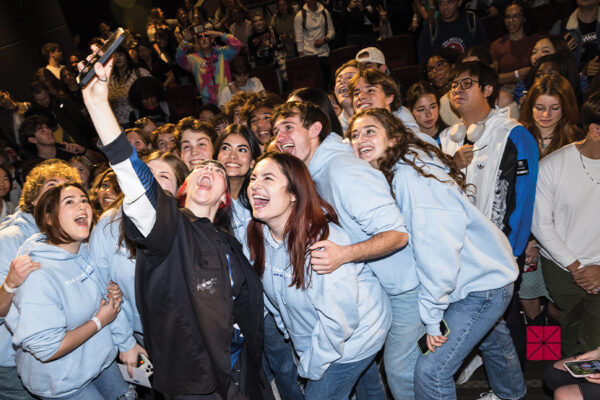Starting in April 2017, the historian Andrew Carroll will be embarking on the “Million Letters Campaign” to seek out and preserve at least one million war-related correspondences from every conflict in U.S. history, from handwritten missives penned during the American Revolution to emails sent from Iraq and Afghanistan. Carroll is the founding director of the Center for American War Letters (CAWL) at Chapman University, and he will be traveling throughout the country and speaking at libraries, schools, historical societies, museums, veterans’ organizations, military academies, civic clubs, places of worship, and similar venues to spread the word about why these writings are so important and, ideally, to encourage people to donate their war-related correspondences to CAWL so that they will be preserved forever.

“There has, I believe, never been a coordinated initiative of this size and scope to save American war-related letters and emails,” Carroll says. “These correspondences help us to honor and remember the troops, veterans, and military family members who have served this nation—these are their words, their voices, and no one can tell their stories better than they can. I also hope this campaign encourages people to write letters to their loved ones about their wartime experiences, even if they relate to events that happened years ago.”
Carroll has made it his life’s mission to raise public awareness about the need to find and preserve war letters and similar writings to honor and remember veterans, troops, and their families. He founded the Center for American War Letters at Chapman University to create a place where the letters could not only be preserved, but also where they could be shared with the public in a permanent exhibit. The kick-off event for the “Million Letters Campaign” is Saturday, April 1st on Chapman’s main campus in Orange, in the Leatherby Libraries. All are welcome.
MY FELLOW SOLDIERS/Book

This April marks the centennial of America’s entry into World War I, and to commemorate this monumental anniversary, Andrew Carroll—author of four bestselling books and director of the Center for American War Letters—gives readers a stunning work of narrative history in MY FELLOW SOLDIERS: General John Pershing and the Americans Who Helped Win the Great War (Penguin Press; on sale April 4, 2017). Although a work of nonfiction told in a narrative style, Carroll includes little-known and newly uncovered letters by General Pershing, as well as those who served with him, to create an incredibly vivid and poignant account of the American experience in World War I. At the heart of this book is an intimate portrait of John Pershing, the U.S. commander of the entire American Expeditionary Forces.
The scope of challenges facing Pershing were immense. Given a military force that, on the eve of war, was downright primitive compared with the European combatants, the general had to surmount enormous obstacles to build an army and lead millions of soldiers to fight against a battle-hardened enemy. Often misunderstood as a harsh, even wooden leader, in private and previously unpublished letters to friends and family Pershing reveals an emotionally vulnerable man whose personal tragedy kept him focused on victory. In August 1915, Pershing’s beloved wife and three young daughters perished in a house fire; only his six-year-old son Warren survived.
Leaving his young son for war was hard on Pershing, but even as he steered the American war effort he always found time to write heartfelt letters from the front. Though Pershing’s reputation waned after the war he remains the highest-ranking general in U.S. history, and this book demonstrates why he deserves to be remembered as one of the country’s most important—and fascinating—military leaders. Woven throughout Pershing’s story are the experiences of an extraordinary group of Americans, gathered by Carroll from a cross-section of stories and letters, from both the famous and unheralded, including a young Harry Truman, George Patton, Douglas MacArthur, Teddy Roosevelt, and his 20-year-old son Quentin, who died in combat. The chorus of these voices, which begins with the first Americans who enlisted in the French Foreign Legion as well as those who flew with the Lafayette Escadrille, makes the stakes of this epic American saga piercingly real. With MY FELLOW SOLDIERS, never before has the war’s profound impact on America been conveyed with such humanity and emotional force.
“THE GREAT WAR”/PBS Film
Both Carroll and Chapman faculty member Dr. Jennifer Keene will appear in PBS’s “The Great War,” which will air on PBS stations across American beginning on April 10. This mini-series will show viewers what it was like to fight in The Great War and will feature Carroll discussing General Pershing and Chapman’s Dr. Keene on general World War I inside knowledge. Both Carroll and Chapman faculty member Dr. Jennifer Keene will appear in PBS’s “The Great War,” which will air on PBS stations across American in early April and will show viewers what it was like to fight in The Great War and will feature Carroll discussing General Pershing and Chapman’s Dr. Keene on general World War I inside knowledge.
Andrew Carroll is the founding director of the Center for American War Letters at Chapman University. Along with editing the New York Times bestsellers War Letters and Behind the Lines, Carroll edited Operation Homecoming, which inspired the Emmy-winning documentary of the same name. Carroll has also counseled troops and veterans, on a voluntarily basis who served in Iraq and Afghanistan coping with PTSD, and he hopes to continue with that work. Carroll lives in Washington, D.C. and Orange, California.
National Book Tour & “Million Letters Campaign” Schedule
(Please know that additional cities are being added regularly and
updates can be found at www.WarLetters.us)
March 31 – LOS ANGELES , CA May 19 & 20 – BOSTON, MA
April 1 – ORANGE, CA May 20 (AF Day) – BOSTON,
April 3, 5 & 6 – WASHINGTON, DC May 21 – MARTHA’S VINEYARD
April 7 & 8 ST. LOUIS, MO May 22 – 24 – NANTUCKET, MA
April 12 & 13 – KANSAS CITY, MO May 26 – TRURO, MA (Memorial Day)
April 15 – MILWAUKEE, WI June 7 – GALVESTON, TX
April 17 & 18 – DENVER, CO June 10 – SAN ANTONIO, TX
April 19 & 20 – C OLORADO SPRINGS, CO June 12 – THE PENTAGON
April 24 and 25 – CHICAGO, IL June 14 (Flag Day) – CHARLESTON, SC
April 26 and 27 – ATLANTA, GA June 17 – HOUSTON, TX
April 27 – MILTON, GA June 24 – SEATTLE, WA
April 30 – STONINGTON, CT June 26 – PORTLAND, OR
May 1 – GROTON, CT June 28 – July 5 (July 4) SAN DIEGO, CA
May 3 – NEW HAVEN, CT September 8 & 9 – WINSTOM-SALEM, NC
May 6 – NEW YORK, NY September 10 -14 GROVE, OKLAHOMA
May 10 – NORFOLK, VA September 26 – LAS VEGAS, NV
May 13 – MIAMI/CORAL CABLES, FL October — WASHINGTON, DC
May 16 – LOUISVILLE, KY November 9 – CHARLESTON, SC
November 11 – Washington, DC
For more information, please visit the Center for American War Letters at www.warletters.us





Add comment